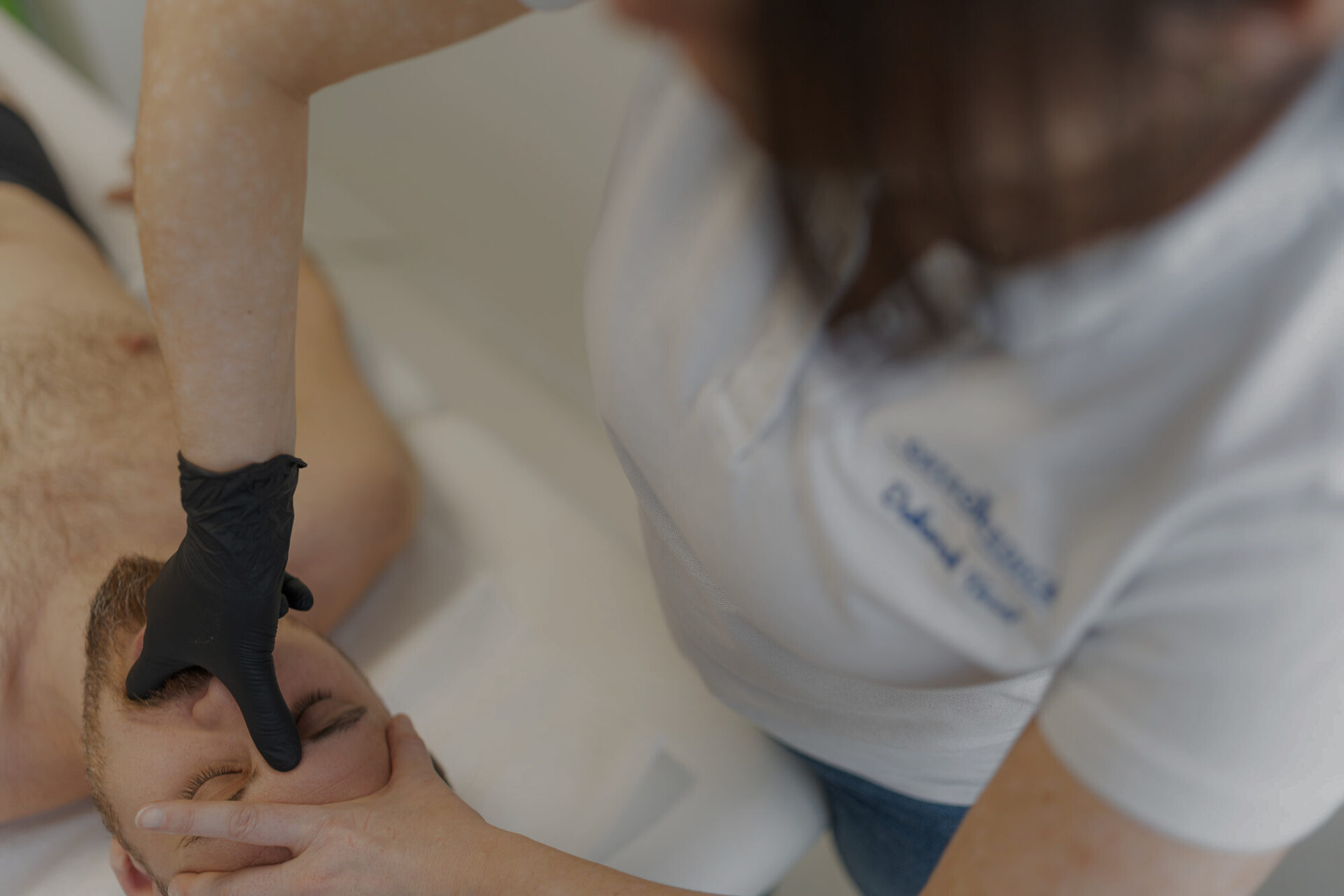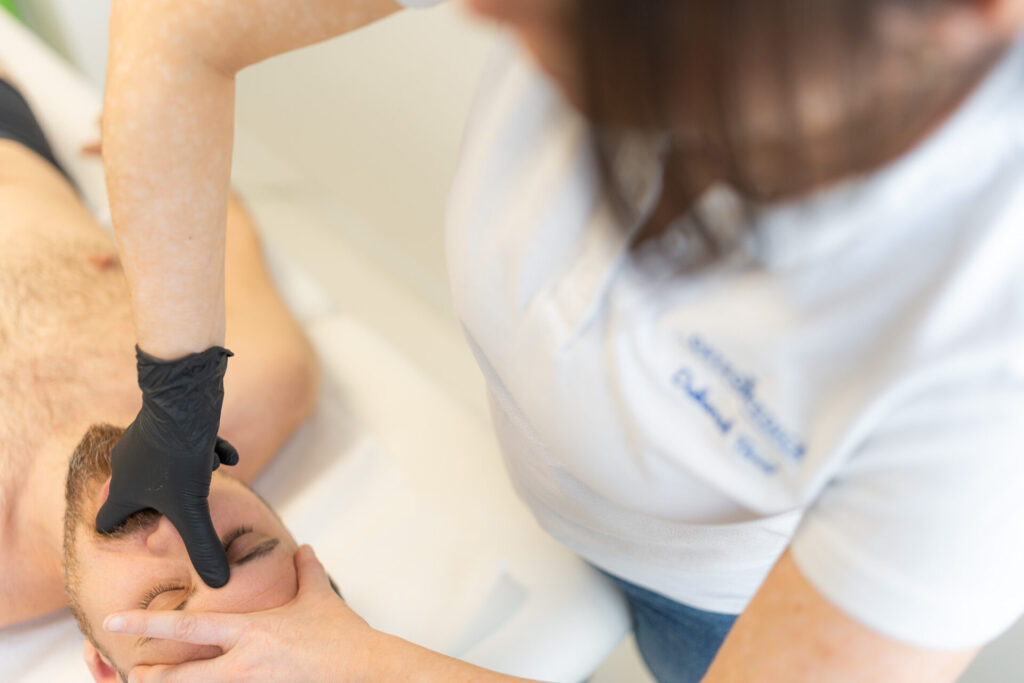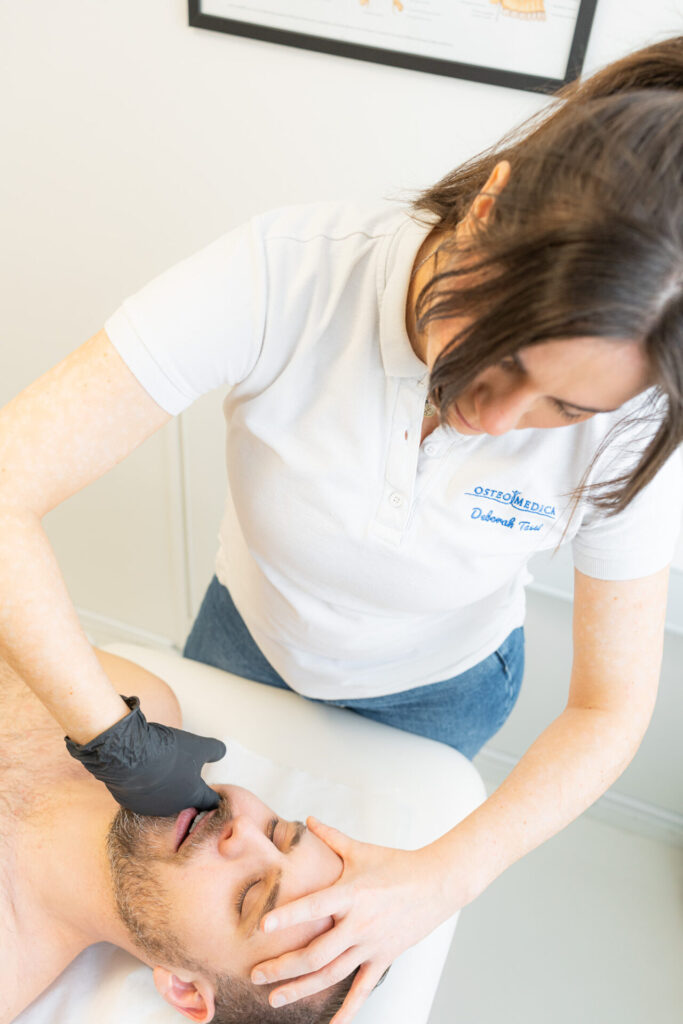Head: Jaw pain
The jaw joint is the most used joint in the body. It opens and closes between 1500 – 2000 times a day, through its various movements associated with eating, speaking, swallowing, yawning, etc. Therefore, if you have problems in your jaw, you will be constantly reminded of it when you talk, eat and drinks.
A dysfunction in the jaw joint or chewing function can cause headaches, neck pain, dizziness and tension in the facial or chewing muscles. Severe jaw pain can also cause tinnitus – a ringing or buzzing in the ears, but can also be accompanied by several symptoms such as reduced hearing, pain in and around the ears and balance problems.





